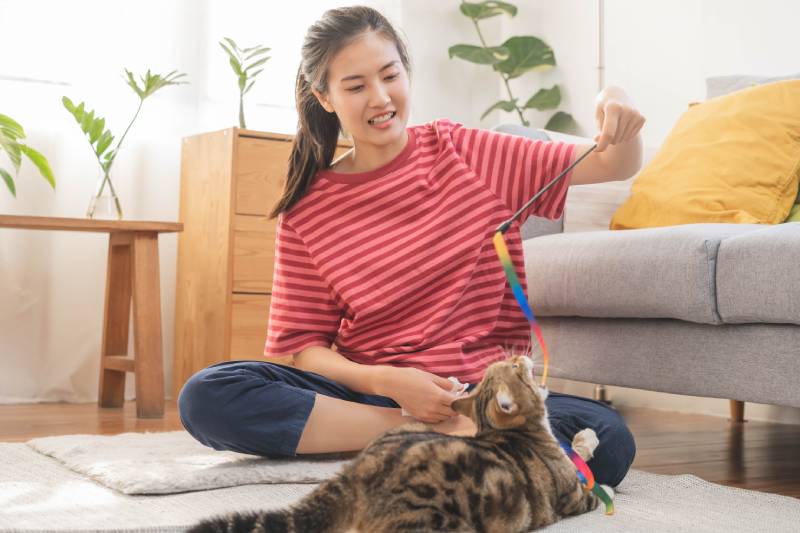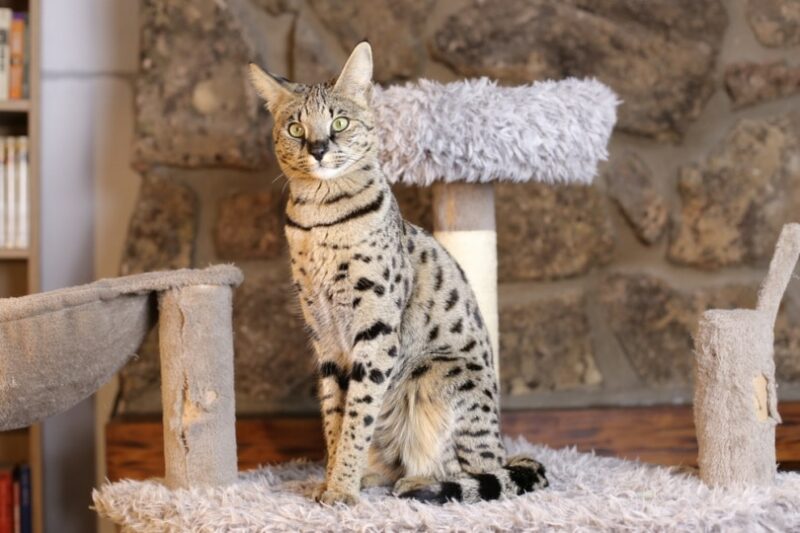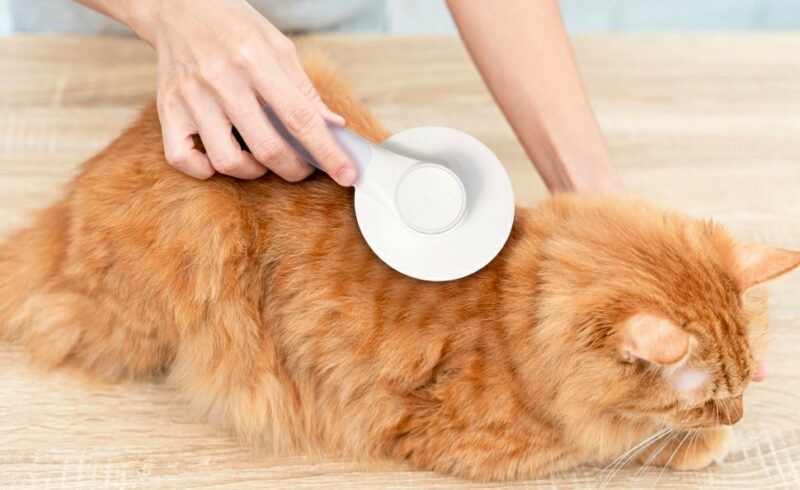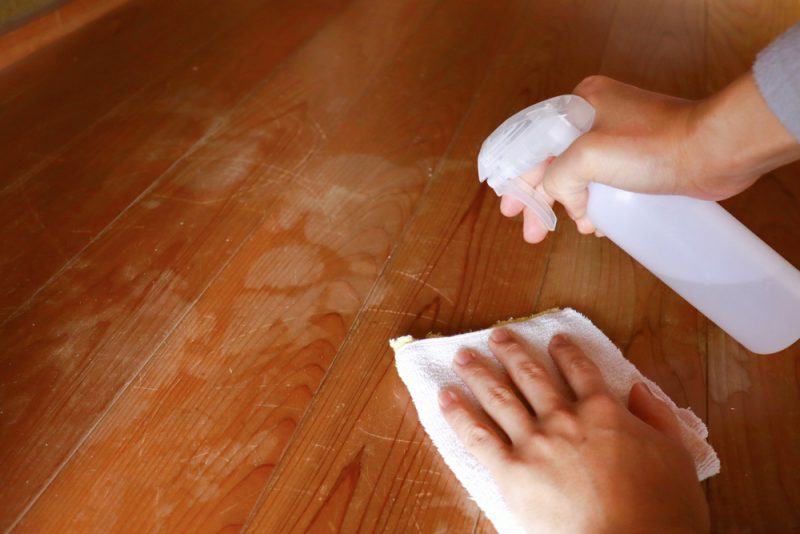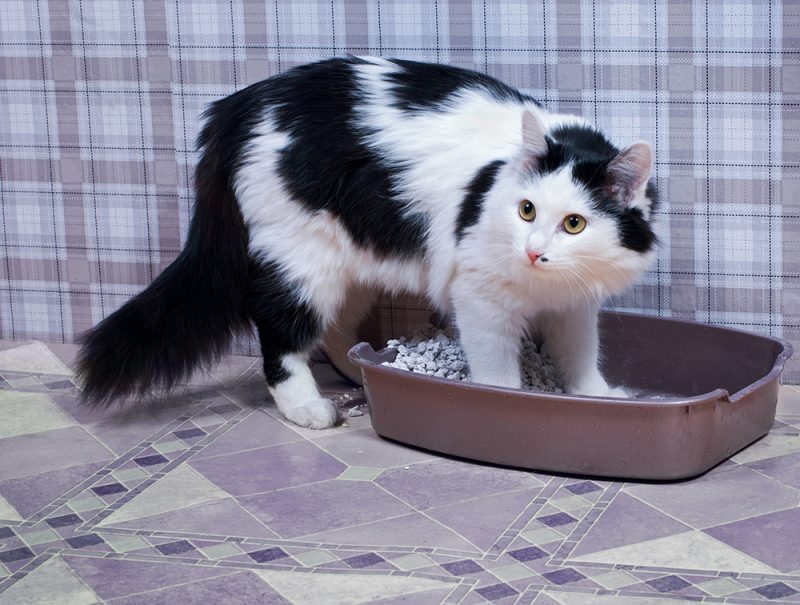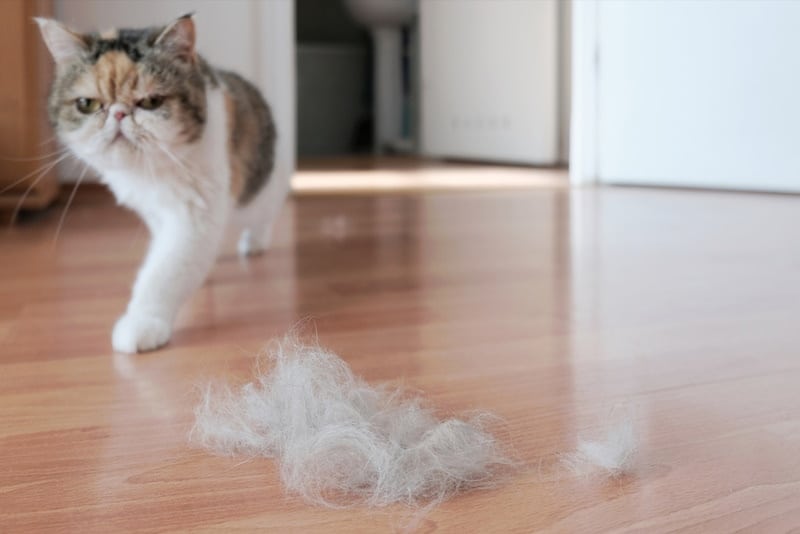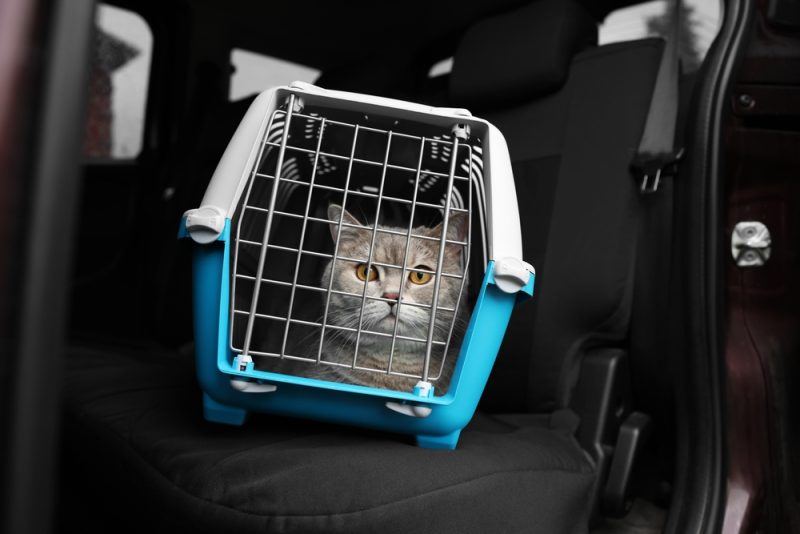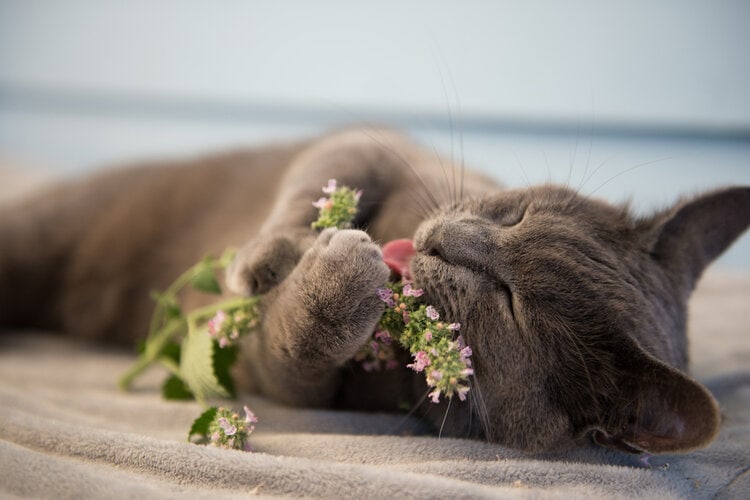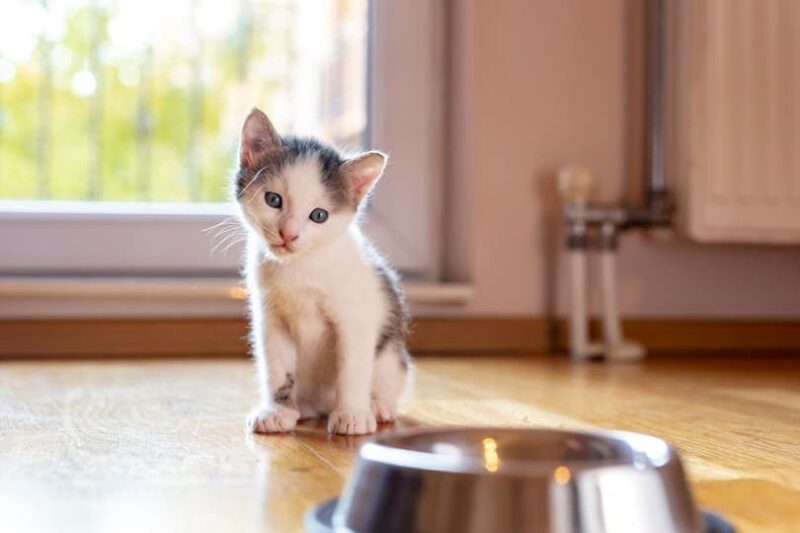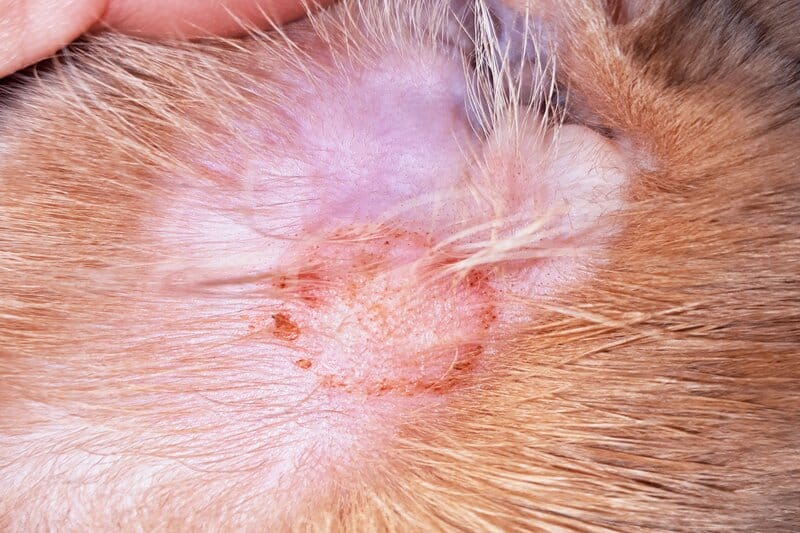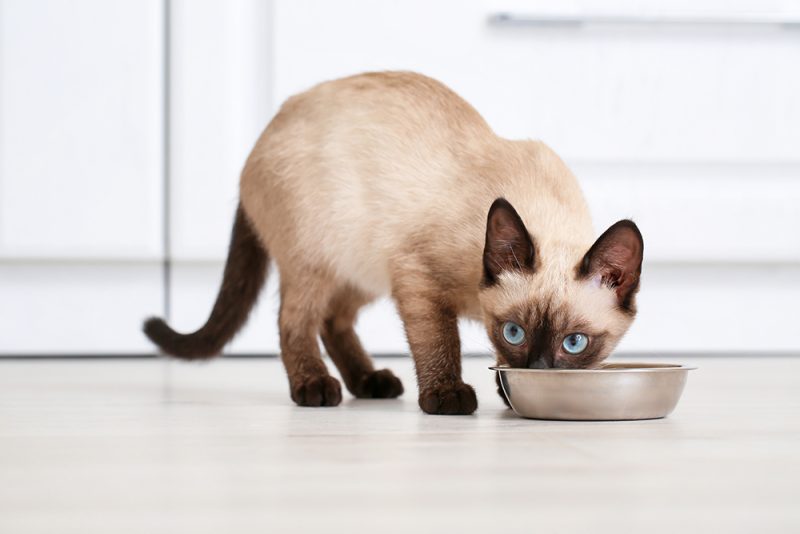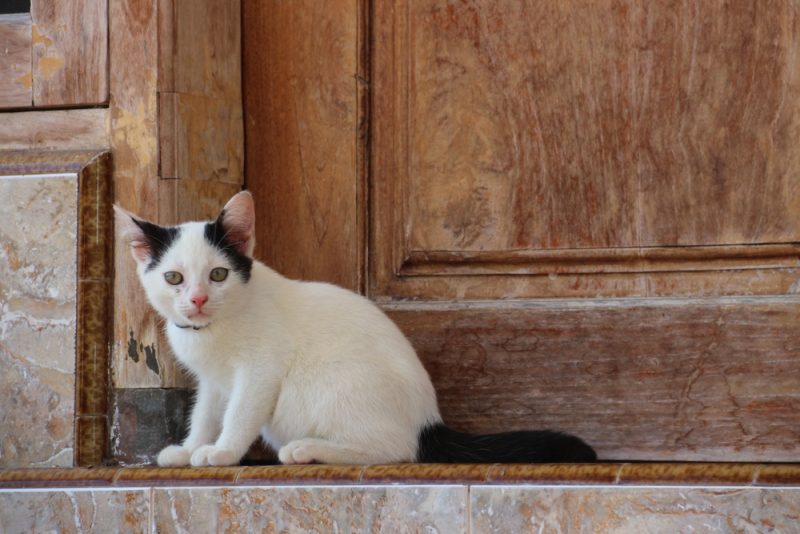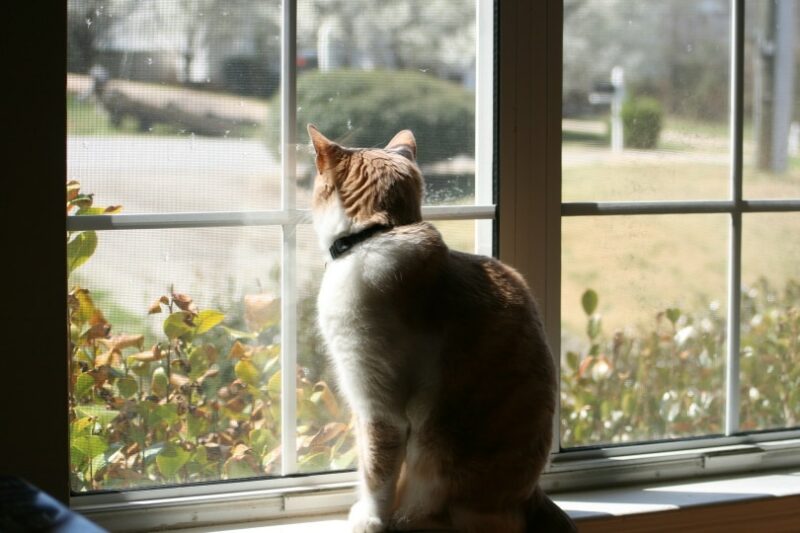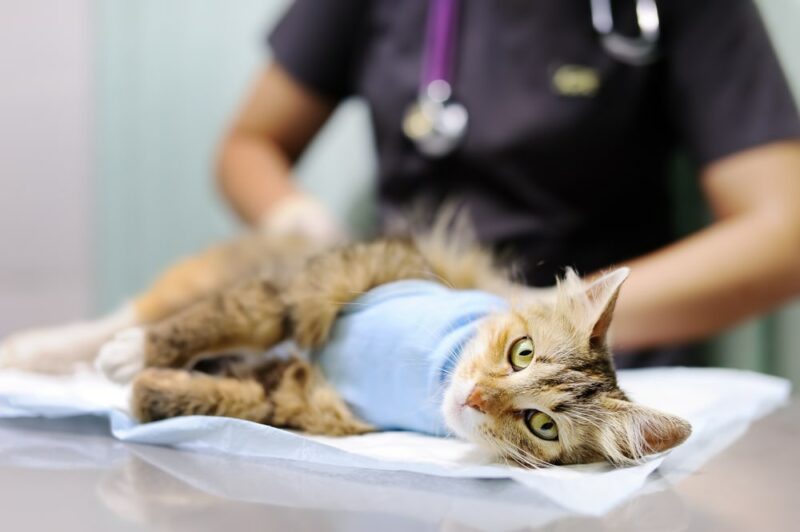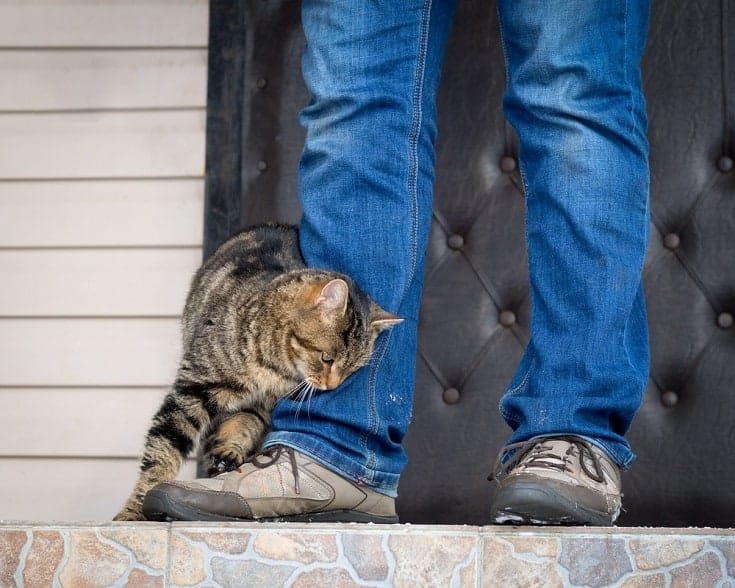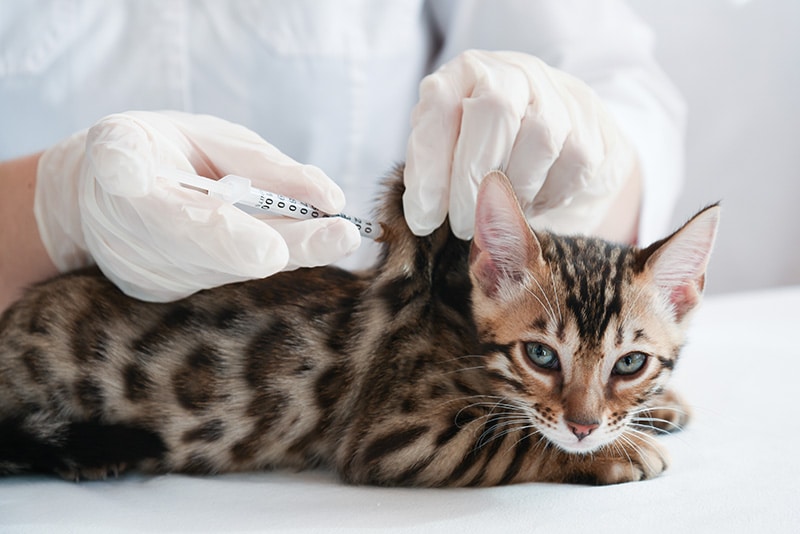From running after shoelaces to chasing and pouncing on teasers, most cats can’t resist fun activities that trigger their natural hunting instincts. Cats of all ages play, but the amount of time they spend doing so and the rigor with which they engage in their favorite activities usually change over time.
Kittens typically spend lots of time playing and are eager to participate in physical activity, while senior cats prefer to relax and sleep most of the day. Older cats are less interested in chasing, pouncing, and jumping than younger ones, but they still benefit from regular physical activity.

How to Keep Your Cat Young at Heart
Kittens, adult cats, and senior kitties have different nutritional, environmental, and physical needs. Ensuring that cats get age-appropriate food and care can go a long way toward keeping them young at heart as they age.
1. Kittens & Juniors
Kittenhood generally lasts until your cat is 6 months old, and from there until they are approximately 2 years of age, they are considered juniors.
- Nutrition and Veterinary Care
Baby cats need specially formulated kitten food until they’re 6 months old. Kittens require multiple visits to the veterinarian to ensure adequate growth, to receive all their vaccinations and preventative care, and to be spayed or neutered and microchipped.
- Play Tendencies and Needs
Kittens and junior cats are incredibly active and engage in play-like behavior as they explore. Most enjoy high-octane activities, and several play sessions per day are appreciated.
Young cats don’t have long attention spans, so it’s normal for them to move from toy to toy pretty quickly. Cats don’t react to catnip until they’re around 6 months, and there’s no need to invest in catnip-infused toys right away.
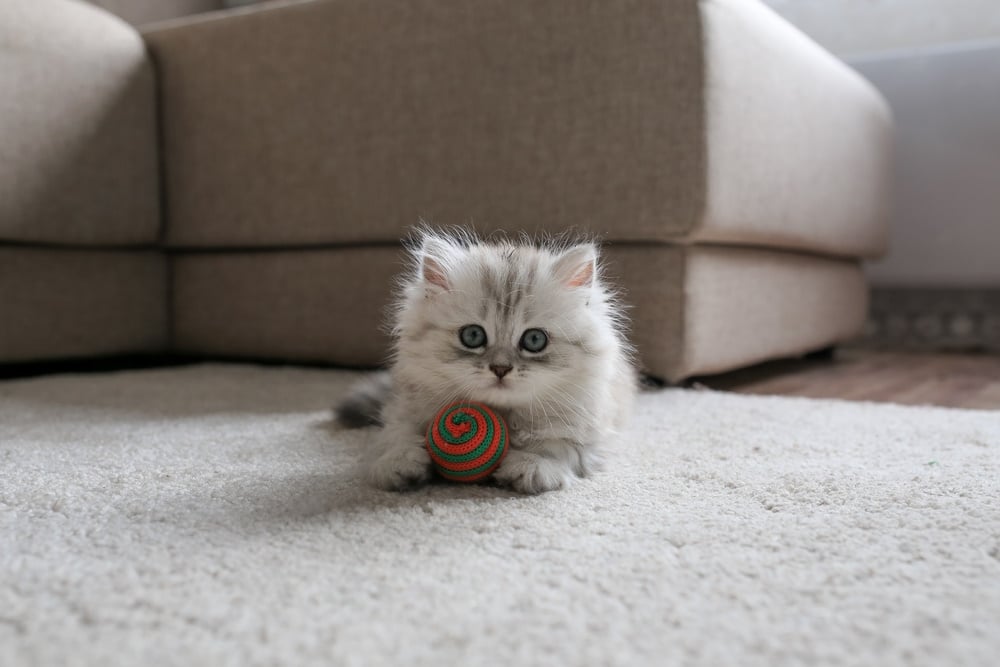
2. Adult Cats
Cats move past their energetic, youthful periods by the time they reach about 2 years old, and they usually mellow out substantially over the coming years.
- Nutrition and Veterinary Care
Nutrition remains incredibly important to adult cats. Not only is it critical to provide protein-rich, high-quality food to keep them happy and healthy, but it’s also essential to keep an eye on how much they eat. Obesity is more likely to occur as cats age, which can increase their chances of developing chronic conditions like diabetes and arthritis and have a negative impact on how long and how well they live.
- Play Tendencies and Needs
Getting enough exercise plays a massive role in keeping adult cats physically fit and mentally engaged. Cats in this age group often benefit from having access to a wide variety of toys to keep them interested.
Catnip and silvervine sprays can sometimes increase laid-back cats’ interest in exercise. Cats generally prefer to engage in short play sessions a few times during the day.
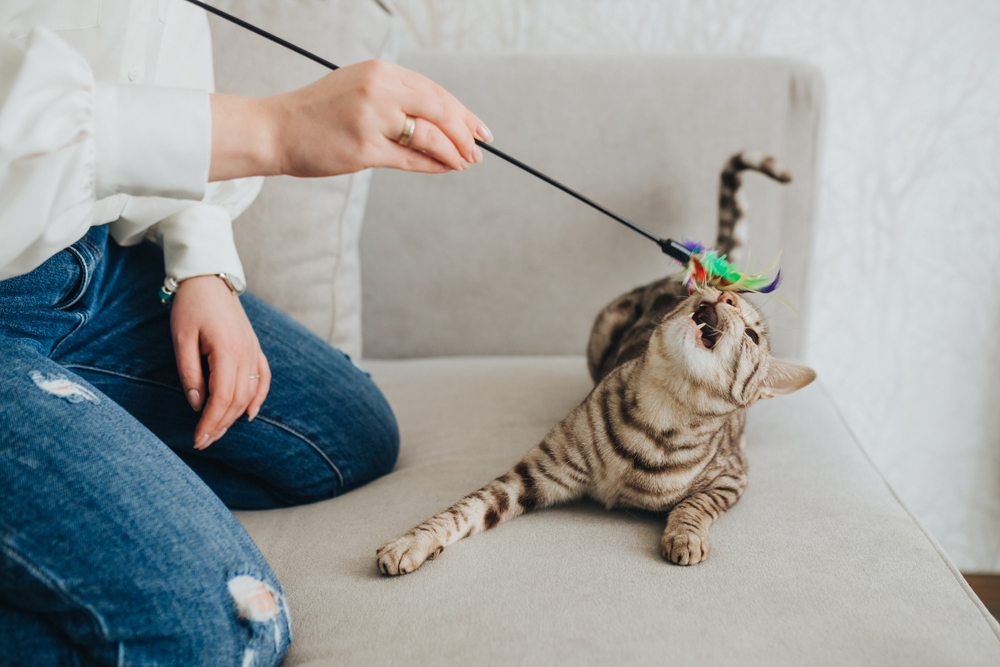
3. Senior Cats
Cats usually hit their senior years at some point after they turn 10 or 11, after which it’s normal for them to start slowing down.
- Nutrition and Veterinary Care
Senior cats need to be seen at least twice a year by the veterinarian to ensure that any heart, liver, thyroid, kidney, and joint issues, among others, are caught as early as possible, which can make chronic conditions easier to control and keep them from progressing as quickly.
Cats sometimes require special diets as they age to help manage certain conditions, such as urinary, kidney, or endocrine issues. Maintaining adequate water intake is essential to manage diseases like kidney disease, diabetes, and hyperthyroidism, all of which cause water loss and require optimal drinking to prevent dehydration.
- Play Tendencies and Needs
Most healthy senior cats have less interest in jumping from dazzling heights and turning corners at full speed. They bat at and engage with items that don’t require too much effort to get to or energy to chase down.
Exercise is vital for aging cats, but they are better off with short, gentle sessions that don’t demand much running or jumping. Even cats with joint conditions benefit from staying active.
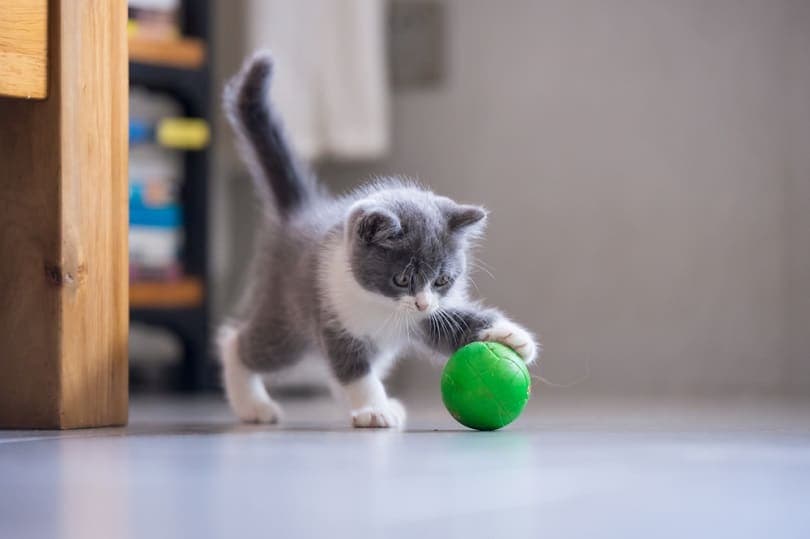

Are There Other Ways to Keep Older Cats Happy and Engaged?
Mobility issues tend to be the biggest challenge for older cats, and many begin to have joint issues that can make movement difficult.
Older cats benefit from having warm places to nap that don’t require them to jump to get into or out of. Heated beds can soothe painful joints, and placing several beds in different locations makes it easy for older cats to find cozy places to hang out.
Ramps can help cats reach perches and napping spots that are off the ground. Putting litter boxes with low sides close to areas where cats like to hang out can also make it easier for those that have mobility issues.

Conclusion
Cats of all ages love to play, but they’re most active as kittens and become less energetic over time. Adult cats settle down when they’re a few years old, but most have reasonably steady energy levels and still like to play.
Senior cats are less interested in running after teasers and participating in long play sessions, but many enjoy more restrained physical activities. You can keep your cat happy, healthy, and interested in playing as they get older by providing great nutrition, regular medical care, and age-appropriate play activities for them to enjoy.
Featured Image Credit: Kmpzzz, Shutterstock
